
THE MISSION
Master HSS mode to shoot outside with faster shutter speeds and wide apertures for better action shots
Time needed One hour
Skill level Advanced
Kit needed • Speedlite with HSS mode • Wireless flash triggers • Lighting stand
Flash photography isn’t a dark art – learn to embrace the flash light instead! In this project, we’re going to show you to manually and remotely control a Speedlite, plus explain how to use the HSS (High-Speed Sync) mode for better action shots in bright sunlight. You may have used some fill-flash before, such as taking portraits in daylight to reduce harsh shadows and lighten up people’s faces. However, Canon EOS cameras have a maximum flash sync speed – eg 1/180 sec to 1/250 sec, depending on your EOS camera. This means in bright conditions when using a pop-up flash or flashgun, you can’t shoot at faster shutter speeds or wide apertures (eg f/2.8 at 1/2000 sec) without ending up with overexposed images, or a black band across the bottom of images.
For this photo project, we’re using Canon’s new beefy pro EL-1 Speedlite. If we switch to HSS mode, it enables us to shoot with a much faster shutter speed than your camera’s flash sync speed, such as 1/1000 sec. This makes it ideal for capturing quick-moving action shots of our doggy, without a hint of motion blur. Plus, we could open our aperture to around f/4 so our subject has separation from a blurred background.
This story is from the August 2021 edition of PhotoPlus : The Canon Magazine.
Start your 7-day Magzter GOLD free trial to access thousands of curated premium stories, and 9,000+ magazines and newspapers.
Already a subscriber ? Sign In
This story is from the August 2021 edition of PhotoPlus : The Canon Magazine.
Start your 7-day Magzter GOLD free trial to access thousands of curated premium stories, and 9,000+ magazines and newspapers.
Already a subscriber? Sign In
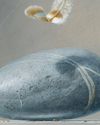
The Art of Copying Art - James Paterson shows you how to use your Canon gear to capture artwork and paintings the right way with simple camera and lighting skills
Whether you want to capture a painting like the above, digitise old prints or reproduce any kind of canvas, there's real skill in capturing artwork with your camera. Not only do you need the colours to be accurate, you also need to master the spread, angle and quality of the light to minimise glare and show the work at its best.This painting by the artist Bryan Hanlon has a wonderfully subtle colour palette. To reproduce the painting in print and digital form, it needs to be captured in the right way.
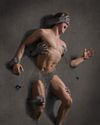
Fright night
Canon photographer and digital artist Alexander loves to craft incredible fantasy scenes with a spooky horror twist

Sharpen your shots with DPP
Sharpening a digital image also increases contrast at the edge of details
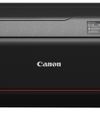
CANON ImagePrograf PRO-1100
Deeper blacks, better bronzing, greater lifespan and 5G Wi-Fi -Canon's new printer is full of new tech, says
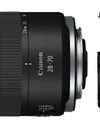
Canon's new 'kit lens' is actually a half-price f/2.8 trinity lens!
The Canon RF 28-70mm F2.8 IS STM lacks a red ring, but borrows premium features from its L-series siblings

DREW GIBSON
Pro motorsports photographer Drew on why he hasn't (yet) switched to Canon's mirrorless system, why old-school techniques can be the most reliable, and the lessons learned from more than a decade shooting the world's biggest car brands

Up in smoke
Make a smoky shape in Affinity Photo and get to grips with the amazing Liquify Persona under the guidance of James Paterson

Expand your creativity with Generative Fill
Photoshop's Al-powered feature brings revolutionary new tools to image editing. James Paterson reveals all...
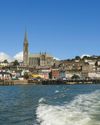
Turn your images into vintage postcards
Wish you were here? Sean McCormack explains how you can give your summer photographs a vintage postcard look
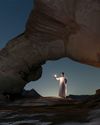
The Angel Malibu
Light painting an American movie producer in the Wadi Rum Desert in Jordan was a highly unlikely evening out for David!